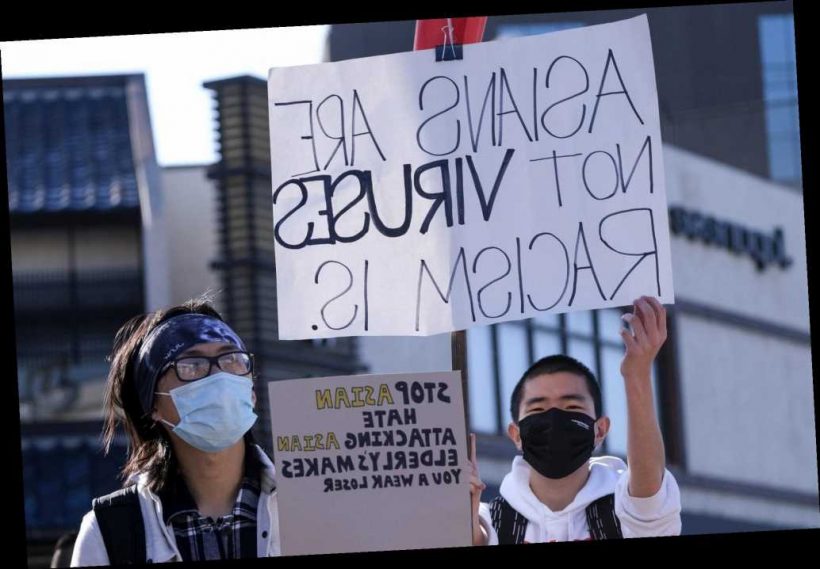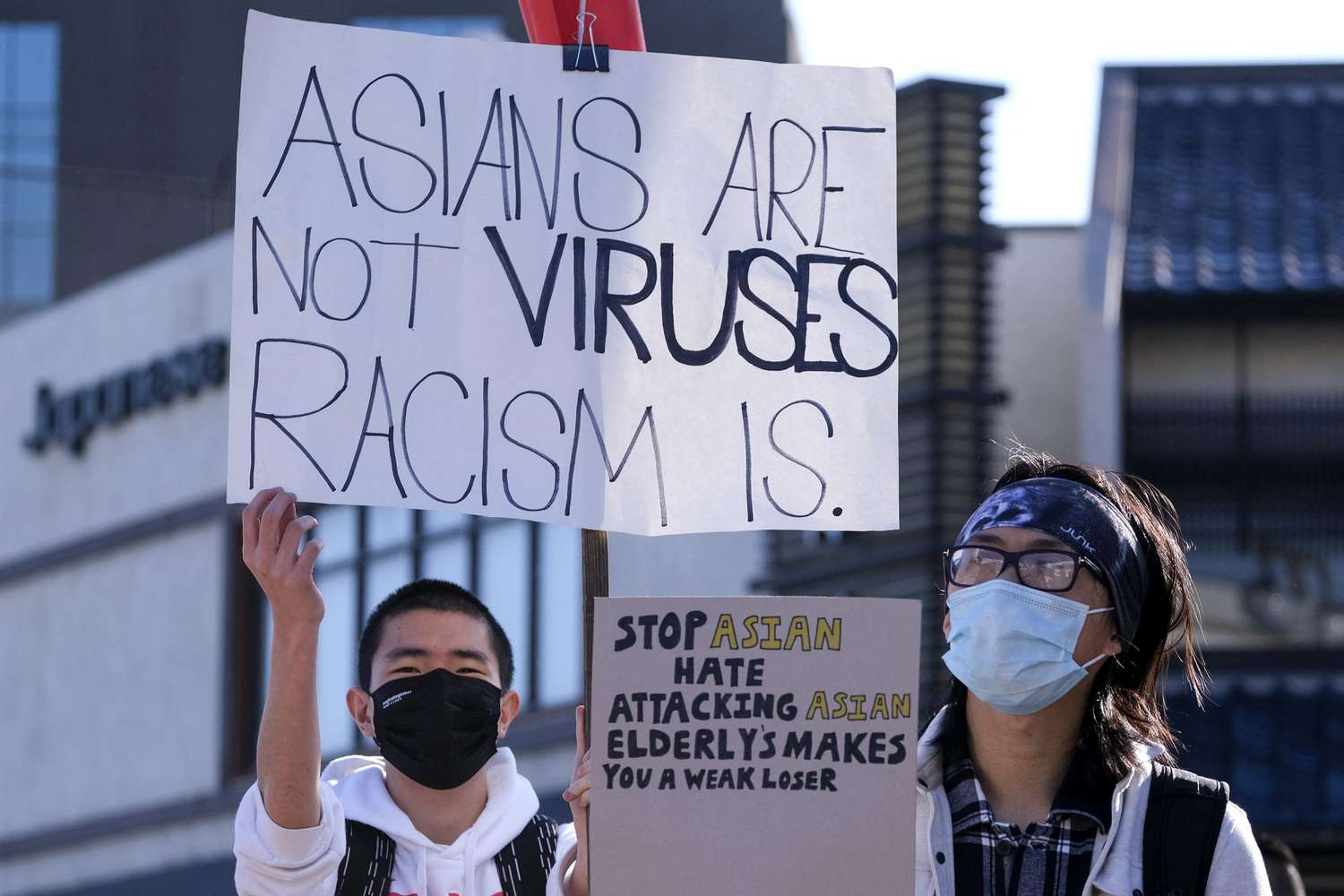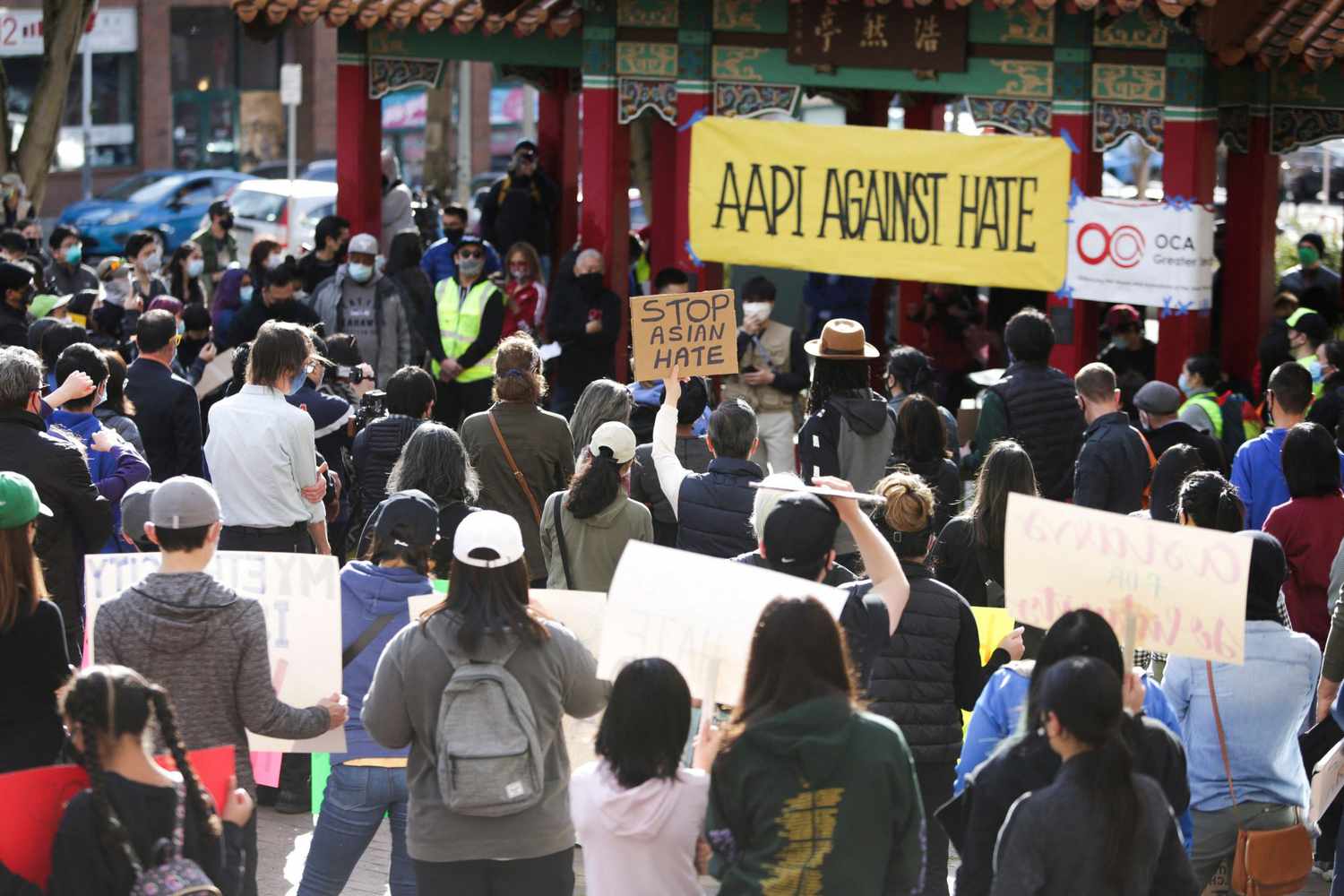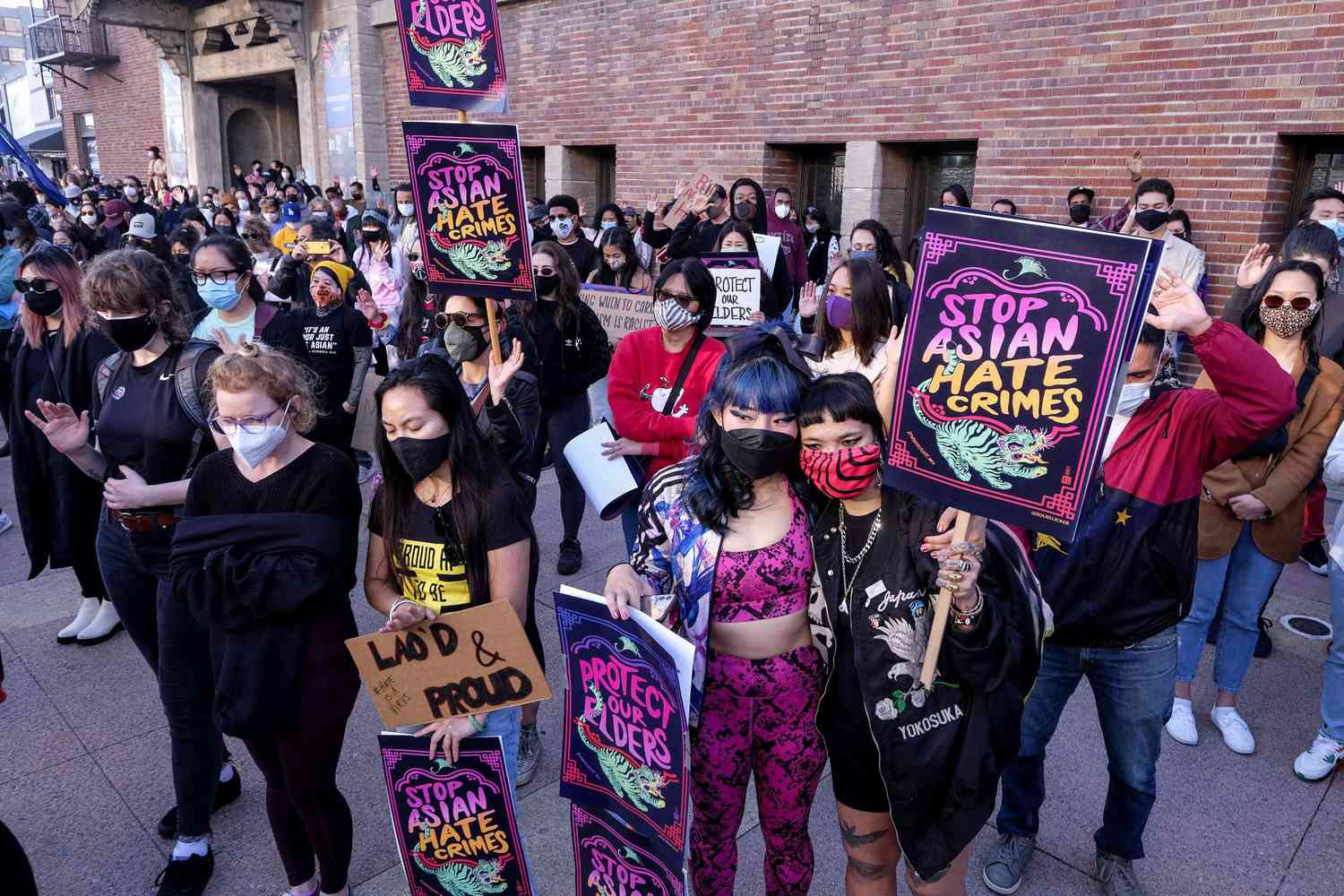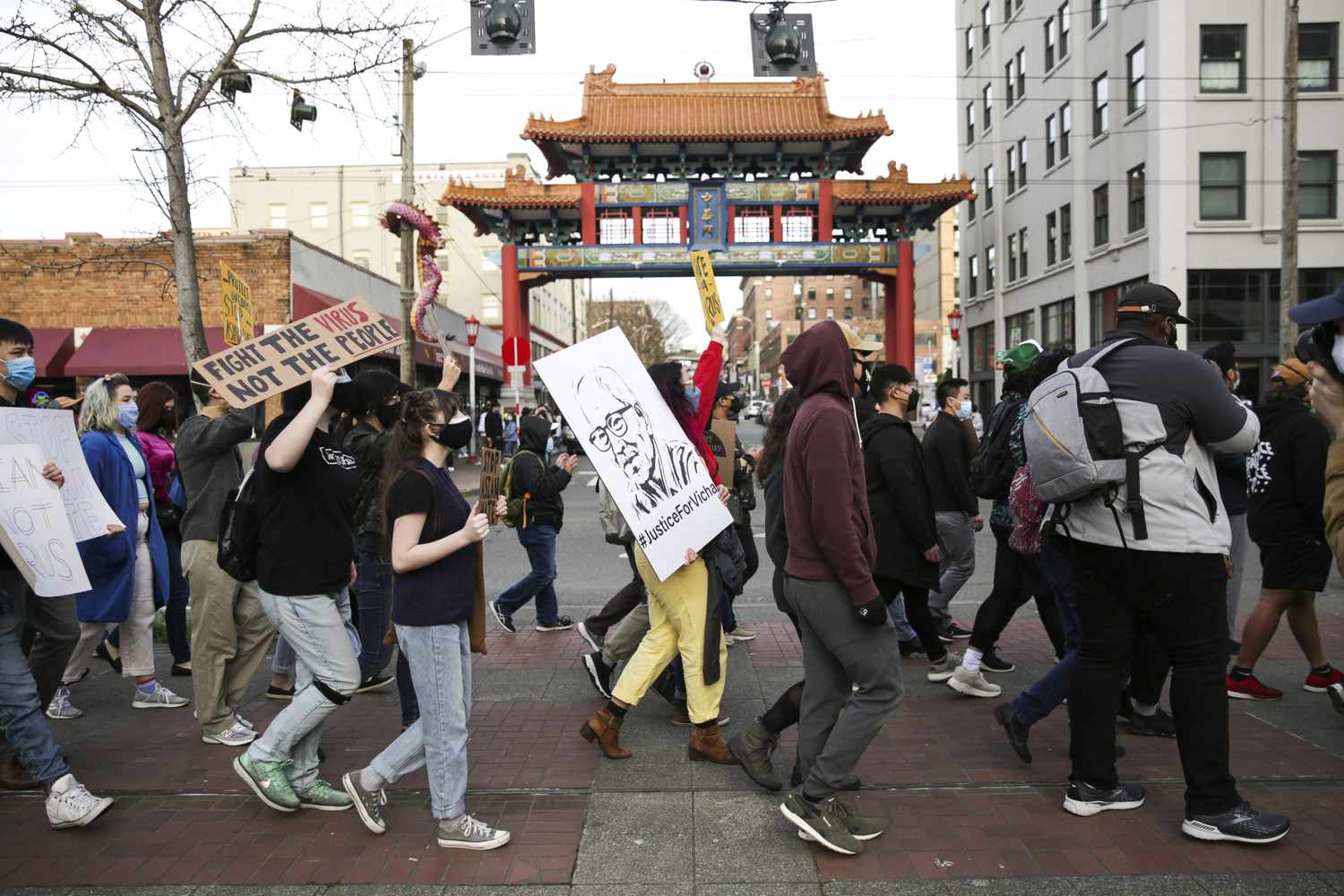Hate crimes against the Asian American and Pacific Islander community have been on the rise since the start of the COVID-19 pandemic. A report released by Stop AAPI Hate revealed that there have been at least 3,795 hate incidents targeting the AAPI community from March 19, 2020, to Feb. 28, 2021. More than 500 of those incidences occurred in 2021.
On March 16, eight people were killed in shootings at three Atlanta-area massage parlors — and though authorities said the suspect was not motivated by race, six of the victims were Asian women.
Stop AAPI Hate, a national group that addresses anti-Asian hate in the U.S., reacted to the shootings, writing, "The reported shootings of Asian American women on Tuesday in Atlanta is an unspeakable tragedy — for the families of the victims first and foremost, but also for the AAPI community — which has been reeling from high levels of racial discrimination."
"Few details have been released, including whether or not the shootings were related or motivated by hate," the organization added on Twitter. "But right now there is a great deal of fear and pain in the Asian American community that must be addressed."
As Bernice King, daughter of Martin Luther King Jr., tweeted following the attack, "Just because someone says their acts of violence weren't 'racially motivated' doesn't mean they weren't. Racism is viciously nuanced, with historical context, economic considerations, and warped ideology."
Racism against the AAPI community is not a new phenomenon, but the last year has seen an uptick in attacks and discrimination against Asian Americans, which some blame, in part, on former president Donald Trump, who referred to COVID-19 as the "China virus" and "Kung Flu" — furthering the rhetoric that Asians were somehow to blame for the global pandemic.
Additionally, the model minority myth — which Learning For Justice describes as one that "characterizes Asian Americans as a polite, law-abiding group who have achieved a higher level of success than the general population through some combination of innate talent and pull-yourselves-up-by-your-bootstraps immigrant striving" — has left people in the AAPI community out of many conversations about racism and the hardships that they face as minorities.
Below, we have compiled a list of organizations that you can give to in order to support AAPI communities:
Stop AAPI Hate
The organization — which was launched in March 2020 in response to the rise in xenophobia and bigotry as a result of the COVID-19 pandemic — tracks incidences of hate crimes, violence, discrimination and more against the AAPI community. They also provide multilingual resources for community members, provide assistance, support safety measures and restorative justice efforts and advocate for change on local, state and federal levels.
Recently, they supported the passage of House Resolution 908, which denounces racism toward the AAPI community as a result of the COVID-19 pandemic. You can see how your representative voted here, and keep them honest about their stance by contacting their offices.
AAPI Community Fund
GoFundMe created a fundraiser that has raised more than $830,000 of its $1 million goal, with all of the donations going to "trusted AAPI Organizations working to rectify the racial inequalities in our society."
Compassion in Oakland
Formed in response to a surge of hate crimes against the AAPI community in California's Bay Area, Compassion in Oakland is an organization that offers chaperones for people within Oakland's Chinatown neighborhood to help them feel safe, rather than walking alone. You can apply to start a Compassion project in your area, volunteer within the organization or donate to the cause.
NextShark
The news outlet — which has been reporting on Asian success stories and anti-Asian hate crimes, encouraging its readers to stand up to hate, as well as informing and educating them — does not receive any funding or loans. Donate now.
Dear Asian Youth
The youth nonprofit, which strives to uplift marginalized communities, was founded in May 2020 by 16-year-old Stephanie Hu as a place to share her poetry, and quickly morphed into a large platform.
Apex for Youth
The New York City-based nonprofit serves students from first to 12th grade, uplifting marginalized communities and connecting Asian and immigrant youth to mentors and volunteers to further support them.
Hate Is A Virus
The nonprofit began in April 2020, and it works to amplify AAPI voices, as well as educating and activating them to stand for justice and dismantle racism and hate.
Asian Mental Health Collective
Recent events can take a toll on the mental health of members of the AAPI community. The Asian Mental Health Collective is an organization whose mission is to "normalize and de-stigmatize mental health within the Asian community." They strive to make mental health accessible, available and affordable to Asian communities.
Related: NBC's Vicky Nguyen: Here's How We Can Combat Anti-Asian Racism Together
Gold House
Gold House is a collective of Asian founders, leaders and creators who strive to unify members of the AAPI community and "enable more authentic multicultural representation and societal equity."
Asian Americans Advancing Justice
This national organization's stated mission is to "advance civil and human rights for Asian Americans and to build and promote a fair and equitable society for all." They fight for national conversations about policies that shape the lives of Asian Americans and advocate for civil and human rights.
Asian American Collective
Created by three female music industry veterans, Grace Lee, Carolina Yim and Zeena Koda, the AAC was formed to foster growth and education for Asian American creators through mentoring programs, profiling famous Asian American people and more.
Welcome to Chinatown
The N.Y.C.-based organization provides relief to businesses hit hard by the COVID-19 pandemic through pro bono resources, amplifies AAPI voices through storytelling and reclaims the narrative around Chinatown, one of the last working-class neighborhoods in lower Manhattan. They are also providing funds to small businesses, covering overhead costs and allowing business owners to recover from the pandemic.
More organizations to give to:
- #EnoughIsEnough
- Asian American Journalists Association
- Asian American Legal Defense and Education Fund
- Empowering Pacific Islander Communities
- W.O.W. Project
- AAPI Progressive Action
- Chinese for Affirmative Action
- Hollaback!
- Womankind
- South Asian Americans Leading Together
- The National Queer Asian Pacific Islander Alliance (NQAPIA)
- Asian/Pacific Islander Domestic Violence Resource Project (DVRP)
- Asian Prisoner Support Committee
- They Can't Burn Us All
- AAPI Women Lead
Want to do more? Educate yourself.
The responsibility to be aware and educated falls on you — do your research and do not burden your Asian American friends and family with that responsibility. Here are a few books we recommend to get started:
- We Gon' Be Alright: Notes on Race and Resegregation by Jeff Chang
- Minor Feelings: An Asian American Reckoning by Cathy Park
- The Woman Warrior: Memoirs of Girlhood Among Ghosts by Maxine Hong Kingston
- The Unpassing by Chia-Chia Lin
- Dear Girls by Ali Wong
- Model Minority Imperialism by Victor Bascara
- The Leavers by Lisa Ko
- Racial Melancholia, Racial Dissociation: On the Social and Psychic Lives of Asian Americans by David Eng and Shinhee Han
- Interior Chinatown by Charles Yu
- Yellow: Race in America Beyond Black and White by Frank Wu
Learn how to intervene effectively as a bystander:
Sign up for one of Asian Americans Advancing Justice's virtual bystander intervention trainings in partnership with Hollaback!.
And check in with your AAPI friends and family.
If you've been attacked or have witnessed an attack, please contact your local authorities. You can also report your incident here.
Source: Read Full Article
